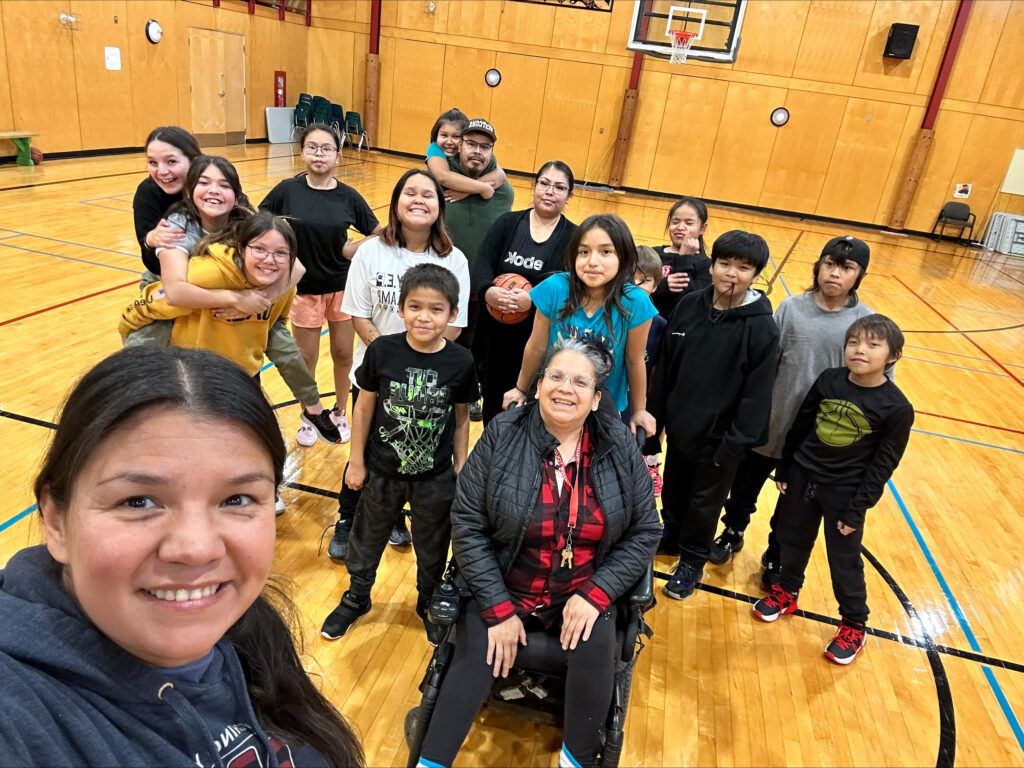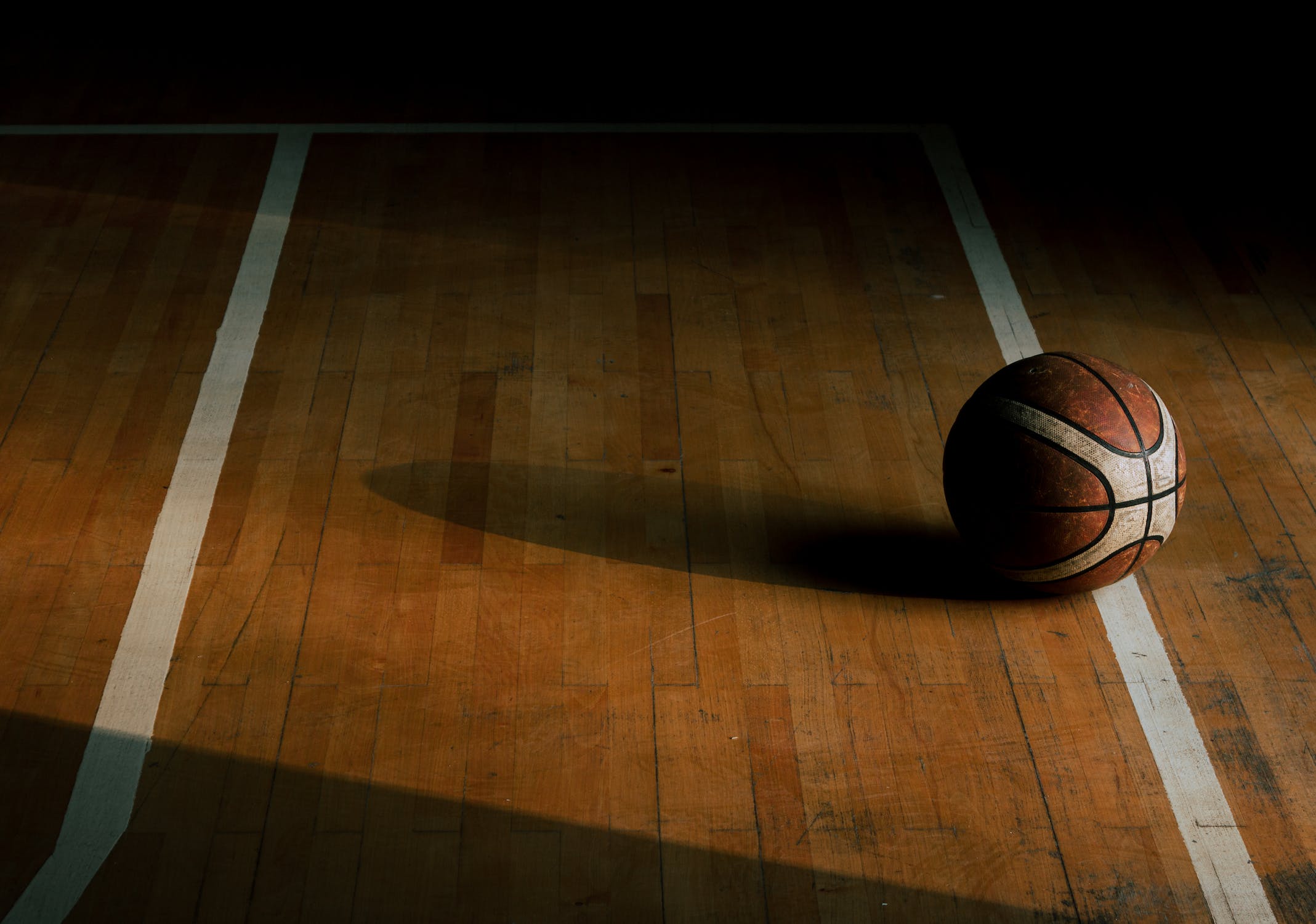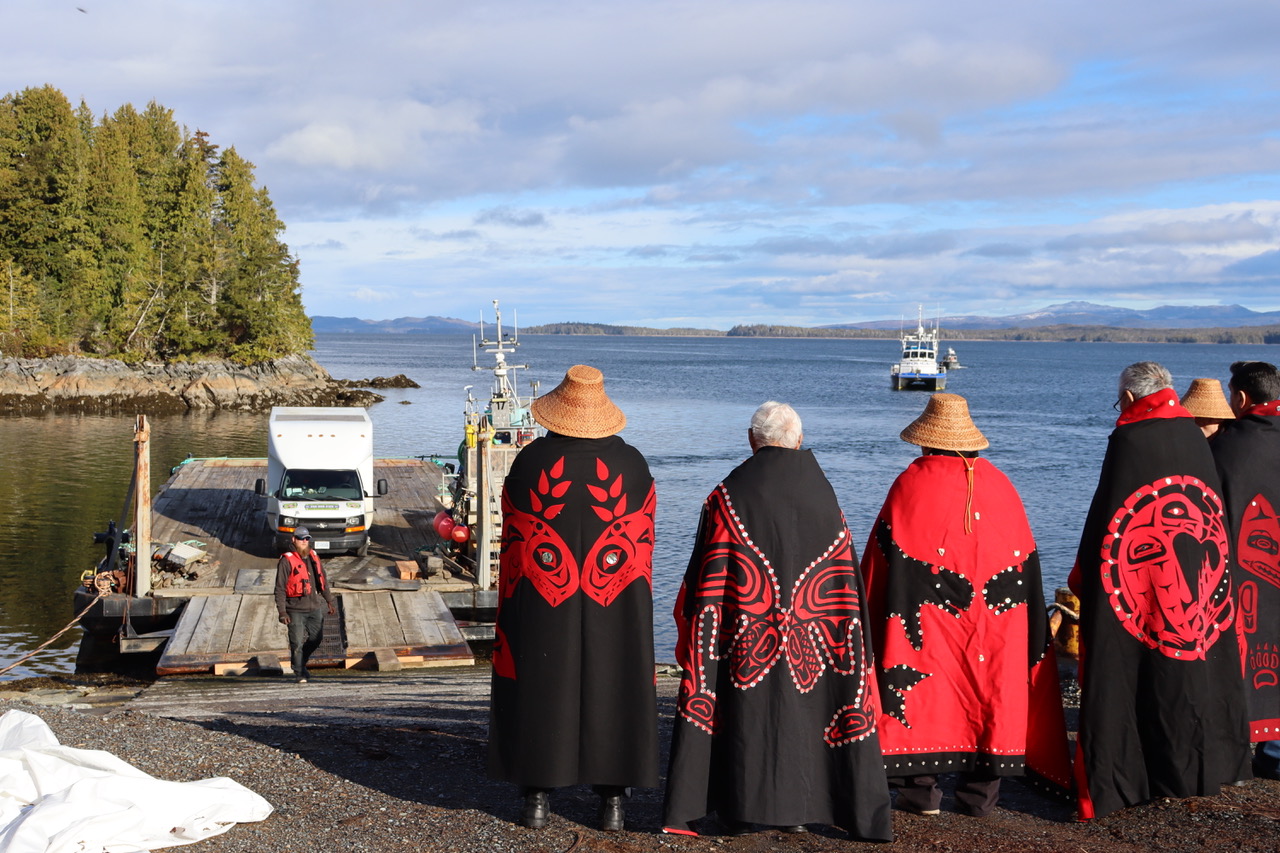Bruce Innes, the elected Deputy Chief Councillor for the Gitxaała Nation, remembers being about 13 years old, playing hockey in the basement of his school with other kids in his community in Lax Klan, until the gym opened next door.
“Everybody goes to the gym, except me,” Bruce says. “I’m there alone now, slapping the puck against the wall. My dad seen that and calls me and says, ‘you don’t have to play basketball, but I want you to sit up there and watch Clarence Innes.’ And I did… and I thought he was the coolest basketball player I had ever seen.”
Clarence Innes is one of the basketball legends within the community. Everyone has their OGs — the people who laid the foundation for what basketball represents across the Coast today. Bruce kept watching Clarence, and other players in his village, including his uncles and friends, and it was the start of a life-long relationship with the sport that shaped his life for the better.
Brenna Innes, an Elected Councillor for her Nation and a basketball coach for the junior girl’s team, says the popular annual All Native Basketball Tournament (ANBT), was partly formed in response to the potlatch ban. The ANBT, officially started in 1959, takes place each year in February in Prince Rupert, filling the town of about 12,000 residents with 4,000 new guests.
“I loved hearing those stories from the late Russell Gamble,” Brenna says. “In the earliest days, the tournament was a time for our people, our communities, to meet and be together, because at that time, it was illegal to gather. They used basketball as a way to do that.”
Discipline, Respect, Pride
Bruce and Brenna recently spoke with youth at the Lax Klan school, about the many lessons they believe are passed on through generations of basketball.
“Basketball isn’t just about dribbling and shooting, it’s about discipline, respect, making positive choices, having pride and a good attitude. Being a part of a team requires all of this… showing up on time, practicing, being prepared both on and off the court,” Brenna says. “We spoke with the youth about the importance of education. Education and sports go hand–in-hand.”
When Bruce was going to school in his village of Lax Klan, those before him also stressed the importance of keeping your grades up, he says.
“That’s what I experienced when I went to Prince Rupert. I didn’t just make the team, I had to keep my marks up to a certain level, in order to stay on the team. There were a couple times my marks went down and I had to spend my weekends studying to get them up, because I loved the game.”
Bruce remembers fondly traveling with his team — around BC, up to Alaska, all the way to Seattle. Last year, as assistant coach, he was asked to drive the Junior Boys team down to Nanaimo for the Junior All Native Basketball Tournament, “quite an experience,” he says. He remembers back in his day, you just “showed up and played,” he says, but now the tournaments have grown to include “powerful opening ceremonies.” The opportunity to connect with people from across the coast is an invaluable experience, but they believe it also charges the players with responsibility.
You’re representing your community. If you do something wrong when you’re on these trips, it’s not you as an individual that gets remembered by all the people out there, it’s the whole community that gets painted with that brush. It’s important the kids know there’s just so much more to going out and playing,” Brenna says.
It’s true that what happens on the court impacts the community, Bruce says, including the great moments of hard work and victory.
“Winning brings pride to a community. There’s a video, ‘it takes a village to raise a banner,’ and it’s so true,” he says. “You see the whole community come out… when we won a few years back, we had to open the band office so people could watch the game on the TV, it was crazy. I was so happy to see everyone come together… we can still sit there and talk about every game we played.”

‘Be Ready When Your Time is Called’
Bruce says he learned from the Gitxaała Warriors before him important lessons that applied to both the court and life in general.
“Not to get frustrated when you’re sitting on that bench, but to be ready when your time is called,” he says. “Teamwork too. Accepting a role. Not everybody’s gonna score, but there are other aspects to the game, someone needs to dribble the ball, some need to play hard on defense. It’s accepting your role and being a part of the whole team.”
Brenna sees a natural inclination to working as a team already forming in the girls she’s coaching. It’s happening instinctively, she says, finding their place and pace all on their own. There are a number of healthy rivalries between teams, but despite the competitive spirit, Bruce says the ANBT is like a “big friendship gathering,” where people have time to reunite and catch up. “It creates lifelong friendships,” Brenna says. “I hope it never dies, in and amongst our Nations.”
Bruce agrees, happy to see Gitxaała kids at home excited about the sport and investing in their education. When asked whether she had any other words of encouragement for youth interested in basketball, Brenna says she’d say the same thing with anything in life, “be passionate about it — it takes practice, commitment, discipline and respect. It takes hard work and dedication.”
Bruce says the words of a late Elder come to mind, “practice doesn’t make perfect, practice of perfection makes perfect.” “When I heard that, I thought about execution — whether you’re on the court or in the classroom, it comes to execution. Start off at low speed and then speed it up… basketball is fast-paced, you better stay ready.”


